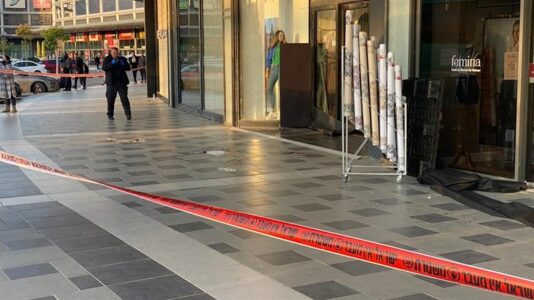
Islamic State-inspired attack comes at a sensitive time for Arab leaders in Israel’s south
The stabbing-and-ramming attack in Be’er Sheva in which four Jews were killed Tuesday caught Arab leaders in the south busy with another problem: a campaign against an armed Jewish group established recently to “save the Negev from the problem of a lack of personal security.” The common view is that this group will actually lower personal security, both of Arabs and Jews.
Mayors of Bedouin communities in the south, civil society groups such as the Abraham Initiatives and the Association for Civil Rights in Israel – with the backing of the Arab mayors’ committee – asked every possible official in the government, police and federation of local governments to block the establishment of the armed group.
The mayor of the Bedouin city of Rahat and the chairman of the Arab mayors’ committee, Faiz Abu Sahiban, agreed. He talked about a process that “could lead to a lack of control. If such a group is established in Omer” – an upscale Be’er Sheva suburb – “then in Rahat too they’ll ask to set one up. So, will every mayor have his own militia?”
The extended family of Tuesday’s assailant, the Hura local council, mayors, the United Arab List and Joint List parties, and civil society groups have all condemned the killing of four people in Tuesday’s attack, showing unity that hasn’t been seen in the Negev for a long time.
But a social activist from Hura said Tuesday’s events had heightened awareness. “I don’t know what went through the terrorist’s head, but there’s no doubt that what we saw on social media on the eve of the attack regarding the militias and the organizing among right-wing groups was the trigger,” he said.
“Even if he was an ISIS supporter, the question of the timing exists: Why now? Maybe it’s the series of events that began last May, including the tree-planting initiative in the Negev.”
Everyone in the Arab community who responded for this article emphasized that this was terrorism by an ISIS supporter. They seek to distinguish between violence and the fight for the recognition of the unrecognized Bedouin villages in the Negev.
They’re also happy that the flood of support for the assailant from Hamas and Islamic Jihad has decreased. A few hours after the attack, the volume of responses from the two organizations ebbed.
Even though they consider Israel the enemy, they want to separate themselves from the Islamic State, with which the Palestinian national struggle cannot identify.
The question now is: Will the terror attack lead to incitement against the entire Arab community in the south, a response and counter-response that will harm both sides and spill into Jerusalem and the mixed Jewish-Arab cities? Or will the government and local leaders lower the flames?
Since the Arab community’s condemnation of the terror attack was unambiguous, it will be good if the people of Be’er Sheva don’t accuse an entire group for the crimes of one person.
The pain of the bereaved families can’t be eased, but at the end of the day Ahmed from Hura and Moshe from Be’er Sheva will have to live together.
Source: Haaretz





